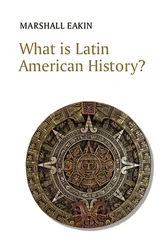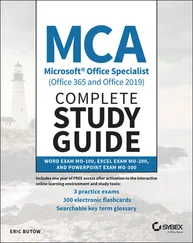The Stamp Act united the colonies in opposition to the “tyranny” of the Mother Country. Subversive secret societies such as the Sons of Liberty were formed in many towns, the boycott of English goods was stepped up, and a Stamp Act Congress was called in New York in October 1765 (eight colonies sent delegates). The congress drafted a “Declaration of Rights and Grievances,” claiming that the colonists had the rights of British subjects and that taxation without parliamentary representation was a violation of those rights. Parliament repealed the Stamp Act in March 1766, but simultaneously delivered a political slap in the face by passing the Declaratory Act, which affirmed Parliament’s authority to create laws for the colonies “in all cases whatever.”
Chancellor of the Exchequer Charles Townshend (1725-67) next pushed through Parliament a bundle of acts intended to raise revenue, tighten customs enforcement, and assert imperial authority in America. Enacted on June 29, 1767, the so-called Townshend Acts levied import duties on glass, lead, paint, paper, and tea. Additional bills in the package authorized “writs of assistance” (blanket search warrants), created additional jury-less vice-admiralty courts, established a board of customs commissioners headquartered in Boston, and suspended the New York assembly for its defiance of the Quartering Act of 1765.
Samuel Adams, of the Massachusetts Sons of Liberty, sent a “circular letter” to the other 12 colonies calling for renewal of the non-importation agreements. Royal customs officials in Boston were attacked after they seized a ship belonging to the merchant John Hancock. The beleaguered officials requested a contingent of English troops to occupy Boston.
During 1768-69, all the colonies except New Hampshire boycotted English goods, and the Virginia House of Burgesses, led by Patrick Henry, created the Virginia Association to enforce the boycott. At this, the royal governor of Virginia dissolved the House of Burgesses, thereby further inflaming anti-British passions. However, in April 1770, Parliament again bowed to the pressure and repealed all the Townshend duties-except for a tax on tea.
The British troops sent to Boston at the request of the beleaguered customs officials were, to put it mildly, not popular. On March 5, 1770, one of the soldiers got into a brawl with a civilian workman. This triggered an evening of protests by bands of colonists who roamed the streets. Finally, a squad of Redcoats, led by Captain Thomas Preston, fired into a small mob agitating in front of the hated Customs House. Three colonists died instantly, and two others were mortally wounded.
Prudently, British authorities immediately withdrew the troops from town. But the “Boston Massacre” became the focal point of anti-British propaganda and heightened American fears about standing armies established in the colonies. The committees of correspondence became increasingly active, and the colonies drew closer together in opposition to the crown.
From Tea Party to Continental Congress
By 1773, the only duty remaining from the Townshend Acts was the tax on tea. To modem ears, this sounds rather trivial. Don’t want to pay a tax on tea? Well, then stop drinking tea!
But going without tea was never a viable option for English men and women. Moreover, in the 18th century, tea was an extremely valuable trade commodity-almost a second currency. The East India Company, England’s chief tea producer, was vital to British government interests because it had extensive influence in India. Expenses, however, were high, and by the 1770s, the company was close to bankruptcy. To bail out the firm, Parliament suspended the tax paid on tea in England but retained the import tax on tea sold in the colonies. Worse, the government ruled that the East India Company could sell the tea directly to agents at a set price rather than through colonial merchants at public auction. Not only was the tax unfair, but colonial merchants, cut out of the profit loop, resented the crown’s intrusion into free enterprise.
The committees of correspondence worked overtime to spread the word of opposition to the tea duty and to impose an absolute boycott of English tea. On one occasion, the royal governor of Massachusetts refused demands to send recently arrived tea ships back to England. So on the night of December 16, 1773, a band of Bostonians—lamely disguised as Indians—boarded three ships in Boston harbor and dumped a cargo of tea chests overboard. The act triggered similar “tea parties” in ports up and down the coast.
King George III of England (173 8-1820) has always gotten a bad rap in American schoolbooks, which traditionally have painted him as a tyrant seeking to squeeze out of the colonies not only their cash, but their liberty as well. In truth, George was a popular monarch, as earnest as he was mediocre and incapable of thinking on his own. During the period immediately preceding the American Revolution, he depended entirely on the advice of his prime minister, Lord North, an aggressive autocrat. Following the Tea Party, it was North who sponsored what the colonists called the Intolerable Acts.
The first of these acts, the Boston Port Act (March 31, 1774), closed the harbor to commerce until such time as Boston paid for the destroyed tea. Next, the Massachusetts Government Act (May 20) reserved for the crown the power to appoint members of the upper house of the legislature. The Government Act also increased the royal governor’s patronage powers, provided that juries be summoned by sheriffs rather than elected by colonists. Most onerous of all, the Government Act banned town meetings not explicitly authorized by law or by the governor. At the same time, the Impartial Administration of justice Act authorized a change of venue to another colony or even to England for crown officers charged with capital crimes while performing official, duties.
Intended to restore order to Massachusetts, the Intolerable Acts boomeranged, leading the colonies to recognize their common cause and to convene the First Continental Congress.
The Congress met in Philadelphia during September 1774, and only Georgia failed to send delegates. The 56 delegates who convened represented the full spectrum of colonial thought, from radicals who wanted to sever all ties with England, to conservatives who wanted to find a way to heal the breach. The Massachusetts delegation produced the Suffolk Resolves, which the radicals supported, calling for the people to arm, to disobey the Intolerable Acts, and to collect their own colonial taxes. The conservatives countered with a plan of union between England and the colonies. With modifications, the Suffolk Resolves were adopted by a margin of six to five. The Intolerable Acts were declared unconstitutional, and the non-importation boycott was given teeth by the creation of a colonial association to enforce it.
Following the Continental Congress, Thomas Jefferson (in his pamphlet, Summary View of the Rights of British America) and John Adams (in a series of published letters he signed “Novanglus”) proposed dominion status for the colonies, whereby the colonies would govern themselves but acknowledge the crown as the head of state. At the time, Parliament rejected this idea as too radical, but liberals in the English government did formulate a plan of conciliation in 1775, which would have granted a considerable degree of self-government to the colonies. The hyper-conservative House of Lords rejected the plan, however, and Parliament as a whole declared Massachusetts to be in rebellion. In a sense, then, it was the British Parliament that declared the American Revolution.
Читать дальше












